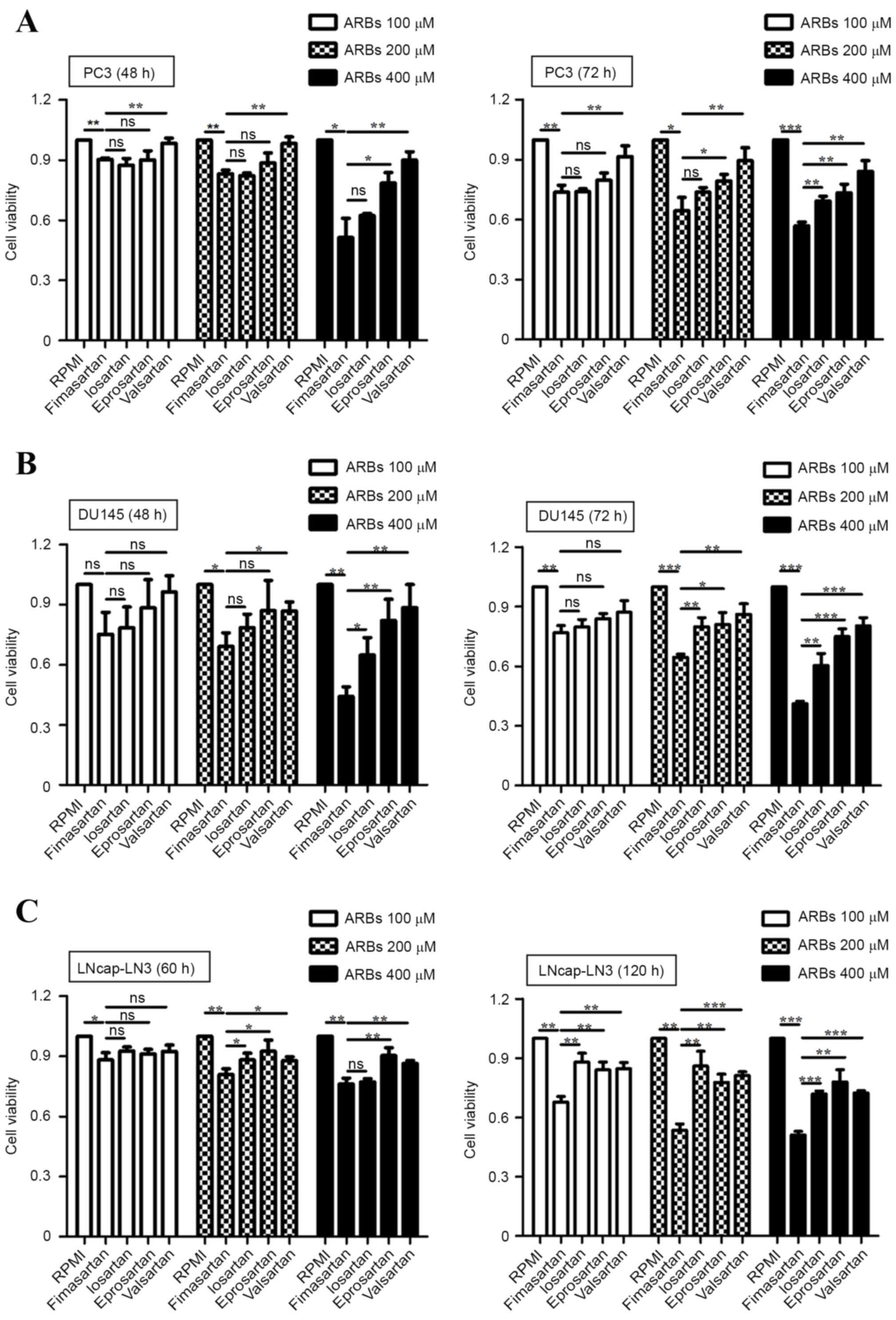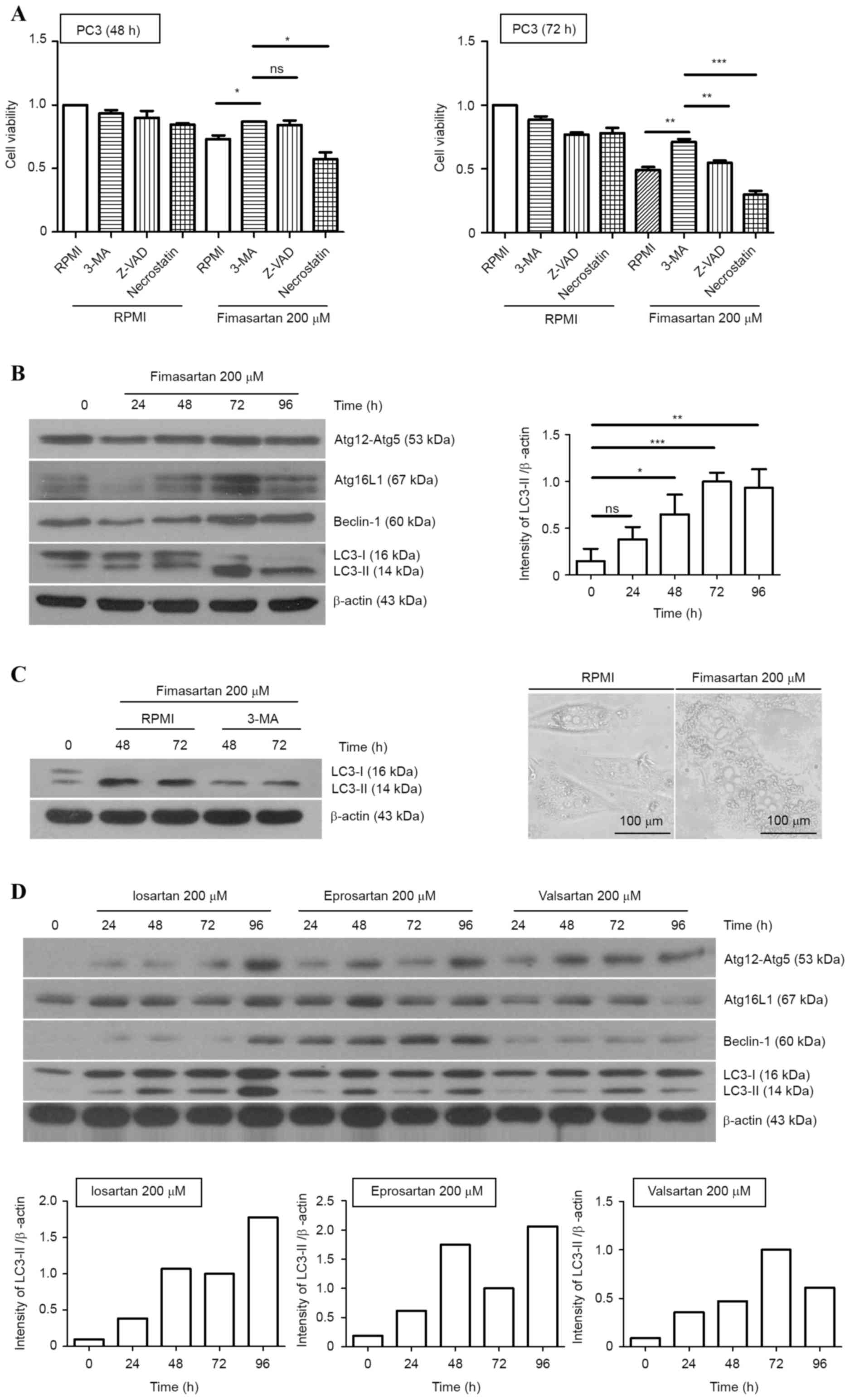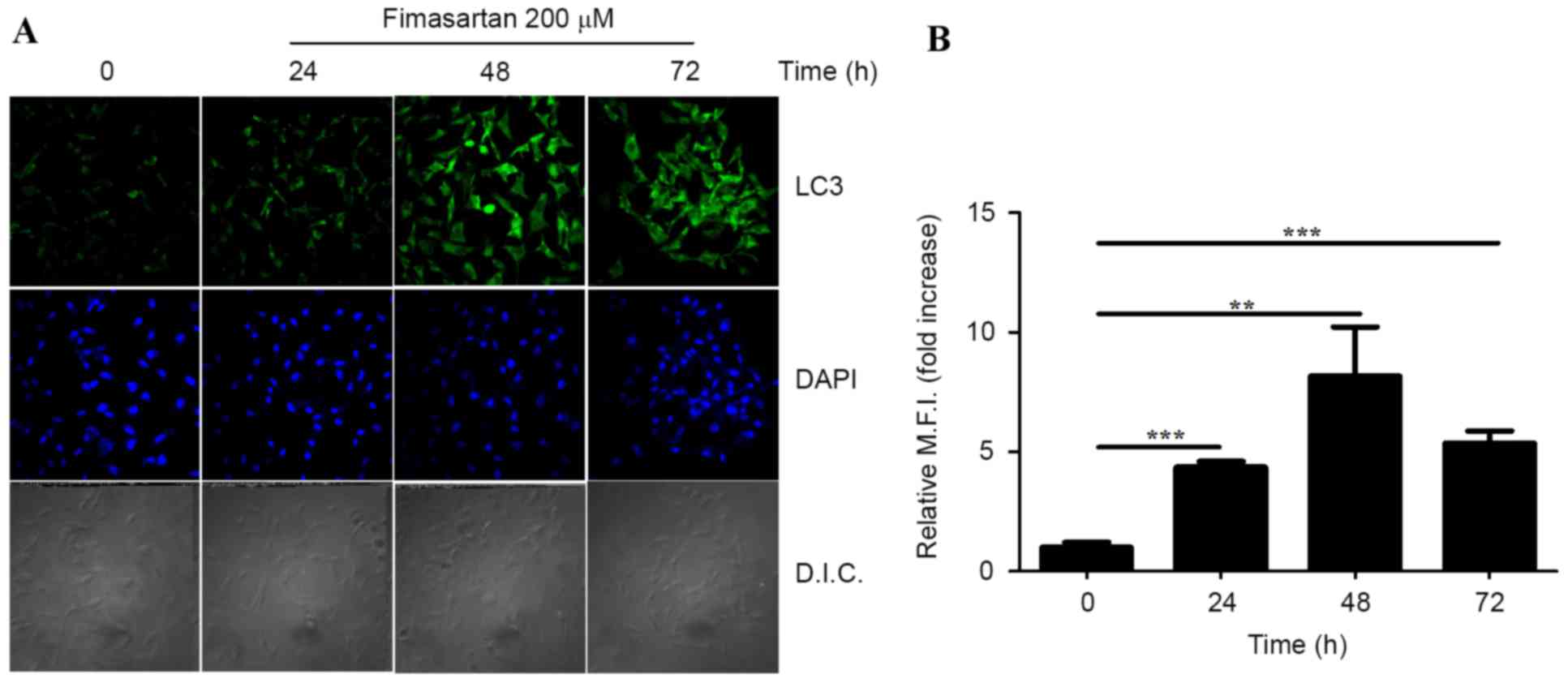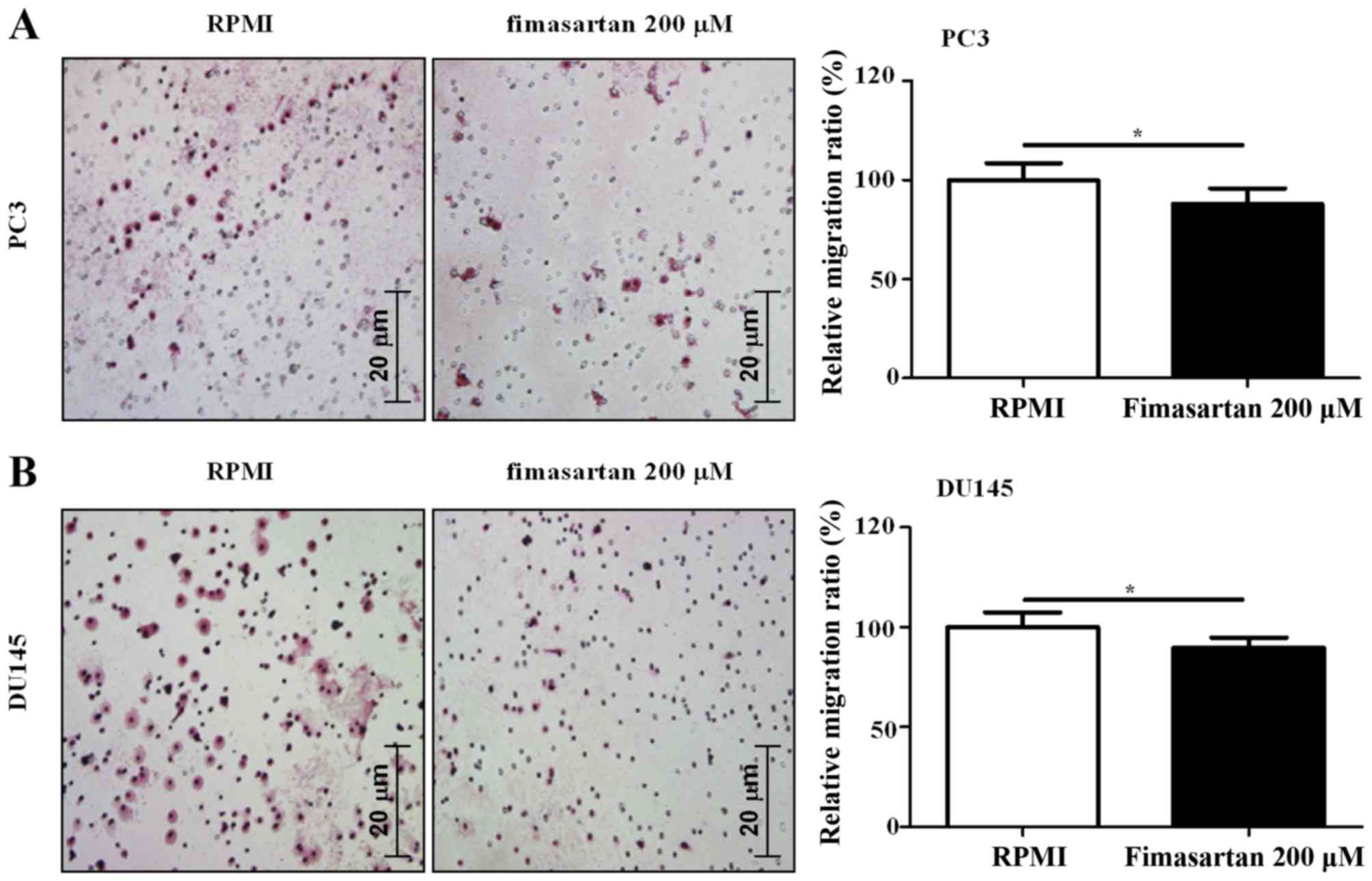|
1
|
Daniels N: Global aging and the allocation
of health care across the life span. Am J Bioeth. 13:1–2. 2013.
View Article : Google Scholar : PubMed/NCBI
|
|
2
|
Orom H, Penner LA, West BT, Downs TM,
Rayford W and Underwood W: Personality predicts prostate cancer
treatment decision-making difficulty and satisfaction.
Psychooncology. 18:290–299. 2009. View
Article : Google Scholar : PubMed/NCBI
|
|
3
|
Guxens M, Fitó M, Martínez-González MA,
Salas-Salvadó J, Estruch R, Vinyoles E, Fiol M, Corella D, Arós F,
Gómez-Gracia E, et al: Hypertensive status and lipoprotein
oxidation in an elderly population at high cardiovascular risk. Am
J Hypertens. 22:68–73. 2009. View Article : Google Scholar : PubMed/NCBI
|
|
4
|
Lin GM, Liu PY, Wu CF, Wang WB and Han CL:
Carvedilol use and specific cancer risk in the population with
hypertension. Int J Cardiol. 186:52–53. 2015. View Article : Google Scholar : PubMed/NCBI
|
|
5
|
Mouhayar E and Salahudeen A: Hypertension
in cancer patients. Tex Heart Inst J. 38:263–265. 2011.PubMed/NCBI
|
|
6
|
Valcamonico F, Arcangeli G, Consoli F,
Nonnis D, Grisanti S, Gatti E, Berruti A and Ferrari V: Idiopathic
intracranial hypertension: A possible complication in the natural
history of advanced prostate cancer. Int J Urol. 21:335–337. 2014.
View Article : Google Scholar : PubMed/NCBI
|
|
7
|
Tahover E, Uziely B, Salah A, Temper M,
Peretz T and Hubert A: Hypertension as a predictive biomarker in
bevacizumab treatment for colorectal cancer patients. Med Oncol.
30:3272013. View Article : Google Scholar : PubMed/NCBI
|
|
8
|
Pant S, Martin LK, Geyer S, Wei L, Van
Loon K, Sommovilla N, Zalupski M, Iyer R, Fogelman D, Ko AH and
Bekaii-Saab T: Treatment-related hypertension as a pharmacodynamic
biomarker for the efficacy of bevacizumab in advanced pancreas
cancer: A pooled analysis of 4 prospective trials of
gemcitabine-based therapy with bevacizumab. Am J Clin Oncol.
39:614–618. 2016. View Article : Google Scholar : PubMed/NCBI
|
|
9
|
Zhang J, Liu J, Chen J, Li X, Wu Y, Chen
H, Wu W, Zhang K and Gu L: Angiotensin receptor blockers (ARBs)
reduce the risk of lung cancer: A systematic review and
meta-analysis. Int J Clin Exp Med. 8:12656–12660. 2015.PubMed/NCBI
|
|
10
|
Chae YK, Valsecchi ME, Kim J, Bianchi AL,
Khemasuwan D, Desai A and Tester W: Reduced risk of breast cancer
recurrence in patients using ACE inhibitors, ARBs, and/or statins.
Cancer Invest. 29:585–593. 2011. View Article : Google Scholar : PubMed/NCBI
|
|
11
|
Mann SJ and Christos PJ: ACE inhibitors
and ARBs: Do they reduce the risk of cancer? J Clin Hypertens
(Greenwich). 16:6–7. 2014. View Article : Google Scholar : PubMed/NCBI
|
|
12
|
Sigmund CD: Structural biology: On stress
and pressure. Nature. 468:46–47. 2010. View
Article : Google Scholar : PubMed/NCBI
|
|
13
|
Asmar R: Targeting effective blood
pressure control with angiotensin receptor blockers. Int J Clin
Pract. 60:315–320. 2006. View Article : Google Scholar : PubMed/NCBI
|
|
14
|
van Zwieten PA: Angiotensin II receptor
antagonists (AT1-blockers, ARBs, sartans): Similarities and
differences. Neth Heart J. 14:381–387. 2006.PubMed/NCBI
|
|
15
|
Imai N, Hashimoto T, Kihara M, Yoshida S,
Kawana I, Yazawa T, Kitamura H and Umemura S: Roles for host and
tumor angiotensin II type 1 receptor in tumor growth and
tumor-associated angiogenesis. Lab Invest. 87:189–198. 2007.
View Article : Google Scholar : PubMed/NCBI
|
|
16
|
Rodrigues-Ferreira S, Abdelkarim M,
Dillenburg-Pilla P, Luissint AC, di-Tommaso A, Deshayes F, Pontes
CL, Molina A, Cagnard N, Letourneur F, et al: Angiotensin II
facilitates breast cancer cell migration and metastasis. PLoS One.
7:e356672012. View Article : Google Scholar : PubMed/NCBI
|
|
17
|
Kosugi M, Miyajima A, Kikuchi E, Horiguchi
Y and Murai M: Angiotensin II type 1 receptor antagonist
candesartan as an angiogenic inhibitor in a xenograft model of
bladder cancer. Clin Cancer Res. 12:2888–2893. 2006. View Article : Google Scholar : PubMed/NCBI
|
|
18
|
Rodrigues-Ferreira S, Morel M, Reis RI,
Cormier F, Baud V, Costa-Neto CM and Nahmias C: A novel cellular
model to study angiotensin II AT2 receptor function in breast
cancer cells. Int J Pept. 2012:7450272012. View Article : Google Scholar : PubMed/NCBI
|
|
19
|
Carl-McGrath S, Ebert MP, Lendeckel U and
Röcken C: Expression of the local angiotensin II system in gastric
cancer may facilitate lymphatic invasion and nodal spread. Cancer
Biol Ther. 6:1218–1226. 2007. View Article : Google Scholar : PubMed/NCBI
|
|
20
|
Matsuyama M, Funao K, Kuratsukuri K,
Tanaka T, Kawahito Y, Sano H, Chargui J, Touraine JL, Yoshimura N
and Yoshimura R: Telmisartan inhibits human urological cancer cell
growth through early apoptosis. Exp Ther Med. 1:301–306.
2010.PubMed/NCBI
|
|
21
|
Uemura H, Ishiguro H, Nakaigawa N,
Nagashima Y, Miyoshi Y, Fujinami K, Sakaguchi A and Kubota Y:
Angiotensin II receptor blocker shows antiproliferative activity in
prostate cancer cells: A possibility of tyrosine kinase inhibitor
of growth factor. Mol Cancer Ther. 2:1139–1147. 2003.PubMed/NCBI
|
|
22
|
Uemura H, Hoshino K and Kubota Y: Role of
renin-angiotensin system and antitumor effect of ARB in prostate
cancer. Nihon Rinsho. 69:(Suppl 5). S155–S159. 2011.(In
Japanese).
|
|
23
|
Uemura H and Kubota Y: Application of
angiotensin II receptor blocker in prostate cancer. Nihon Rinsho.
67:807–811. 2009.(In Japanese). PubMed/NCBI
|
|
24
|
Funao K, Matsuyama M, Kawahito Y, Sano H,
Chargui J, Touraine JL, Nakatani T and Yoshimura R: Telmisartan is
a potent target for prevention and treatment in human prostate
cancer. Oncol Rep. 20:295–300. 2008.PubMed/NCBI
|
|
25
|
Burikhanov R, Zhao Y, Goswami A, Qiu S,
Schwarze SR and Rangnekar VM: The tumor suppressor Par-4 activates
an extrinsic pathway for apoptosis. Cell. 138:377–388. 2009.
View Article : Google Scholar : PubMed/NCBI
|
|
26
|
Okada H and Mak TW: Pathways of apoptotic
and non-apoptotic death in tumour cells. Nat Rev Cancer. 4:592–603.
2004. View
Article : Google Scholar : PubMed/NCBI
|
|
27
|
Kelly GL and Strasser A: The essential
role of evasion from cell death in cancer. Adv Cancer Res.
111:39–96. 2011. View Article : Google Scholar : PubMed/NCBI
|
|
28
|
Kondo Y, Kanzawa T, Sawaya R and Kondo S:
The role of autophagy in cancer development and response to
therapy. Nat Rev Cancer. 5:726–734. 2005. View Article : Google Scholar : PubMed/NCBI
|
|
29
|
Mathew R, Karantza-Wadsworth V and White
E: Role of autophagy in cancer. Nat Rev Cancer. 7:961–967. 2007.
View Article : Google Scholar : PubMed/NCBI
|
|
30
|
Kang SJ, Tak JH, Cho JH, Lee HJ and Jung
YJ: Stimulation of the endosomal TLR pathway enhances
autophagy-induced cell death in radiotherapy of breast cancer.
Genes & Genomics. 32:599–606. 2010. View Article : Google Scholar
|
|
31
|
Bose SK, Gibson W, Giri S, Nath N and
Donald CD: Angiotensin II up-regulates PAX2 oncogene expression and
activity in prostate cancer via the angiotensin II type I receptor.
Prostate. 69:1334–1342. 2009. View Article : Google Scholar : PubMed/NCBI
|
|
32
|
Schweichel JU and Merker HJ: The
morphology of various types of cell death in prenatal tissues.
Teratology. 7:253–266. 1973. View Article : Google Scholar : PubMed/NCBI
|
|
33
|
Kroemer G and Levine B: Autophagic cell
death: The story of a misnomer. Nat Rev Mol Cell Biol. 9:1004–1010.
2008. View
Article : Google Scholar : PubMed/NCBI
|
|
34
|
Yosypiv IV, Schroeder M and El-Dahr SS:
Angiotensin II type 1 receptor-EGF receptor cross-talk regulates
ureteric bud branching morphogenesis. J Am Soc Nephrol.
17:1005–1014. 2006. View Article : Google Scholar : PubMed/NCBI
|
|
35
|
Yang WL, Perillo W, Liou D, Marambaud P
and Wang P: AMPK inhibitor compound C suppresses cell proliferation
by induction of apoptosis and autophagy in human colorectal cancer
cells. J Surg Oncol. 106:680–688. 2012. View Article : Google Scholar : PubMed/NCBI
|
|
36
|
Galavotti S, Bartesaghi S, Faccenda D,
Shaked-Rabi M, Sanzone S, McEvoy A, Dinsdale D, Condorelli F,
Brandner S, Campanella M, et al: The autophagy-associated factors
DRAM1 and p62 regulate cell migration and invasion in glioblastoma
stem cells. Oncogene. 32:699–712. 2013. View Article : Google Scholar : PubMed/NCBI
|
|
37
|
Michaud M, Martins I, Sukkurwala AQ,
Adjemian S, Ma Y, Pellegatti P, Shen S, Kepp O, Scoazec M, Mignot
G, et al: Autophagy-dependent anticancer immune responses induced
by chemotherapeutic agents in mice. Science. 334:1573–1577. 2011.
View Article : Google Scholar : PubMed/NCBI
|
|
38
|
Konstam MA, Neaton JD, Dickstein K,
Drexler H, Komajda M, Martinez FA, Riegger GA, Malbecq W, Smith RD,
Guptha S, et al: Effects of high-dose versus low-dose losartan on
clinical outcomes in patients with heart failure (HEAAL study): A
randomised, double-blind trial. Lancet. 374:1840–1848. 2009.
View Article : Google Scholar : PubMed/NCBI
|
|
39
|
Abe M, Okada K, Maruyama T, Matsumoto S
and Matsumoto K: Blood pressure-lowering and antiproteinuric effect
of switching from high-dose angiotensin receptor blockers to
normal-dose telmisartan and low-dose hydrochlorothiazide in
hypertensive patients with chronic kidney disease. Int J Clin
Pharmacol Ther. 48:206–213. 2010. View
Article : Google Scholar : PubMed/NCBI
|
|
40
|
Colegio OR, Chu NQ, Szabo AL, Chu T,
Rhebergen AM, Jairam V, Cyrus N, Brokowski CE, Eisenbarth SC,
Phillips GM, et al: Functional polarization of tumour-associated
macrophages by tumour-derived lactic acid. Nature. 513:559–563.
2014. View Article : Google Scholar : PubMed/NCBI
|
|
41
|
Yang M, Zheng J, Miao Y, Wang Y, Cui W,
Guo J, Qiu S, Han Y, Jia L, Li H, et al: Serum-glucocorticoid
regulated kinase 1 regulates alternatively activated macrophage
polarization contributing to angiotensin II-induced inflammation
and cardiac fibrosis. Arterioscler Thromb Vasc Biol. 32:1675–1686.
2012. View Article : Google Scholar : PubMed/NCBI
|


















